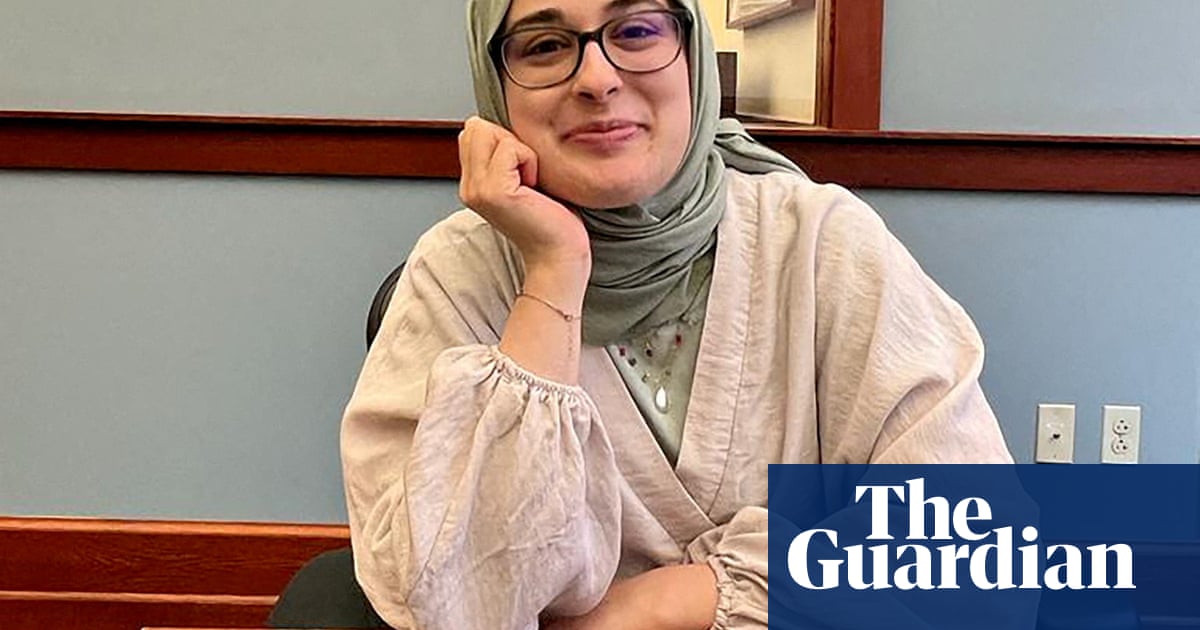The article presents a significant case involving Rümeysa Öztürk, a Turkish student at Tufts University, who has been detained following her criticism of the university's stance on the Gaza conflict. This situation raises important questions about free speech, immigration policies, and the treatment of individuals in detention. Examining the implications and the narrative surrounding this issue reveals several layers of complexity.
Legal and Human Rights Concerns
The court's decision to transfer Öztürk back to Vermont for hearings signifies a notable legal battle. Her lawyers argue that her detention violates her constitutional rights, particularly regarding free speech and due process. This aspect of the case could resonate with broader human rights discussions, especially in the context of immigration enforcement and the treatment of dissenting voices in the U.S.
Public Perception and Community Response
The narrative presented in the article appears to aim at generating empathy and solidarity among readers, particularly those concerned with social justice, free speech, and academic freedom. By emphasizing Öztürk's detention over her opinions, the article seeks to highlight potential abuses of power and the chilling effects of such actions on activism and academic expression.
Potential Omissions and Underlying Issues
While the article focuses on Öztürk's situation, it may not delve deeply into the broader implications of immigration policy or the specific actions of Tufts University regarding its investment ties. This lack of comprehensive context could suggest a desire to concentrate on individual injustice rather than systemic issues that contribute to such cases.
Manipulative Elements and Rhetorical Strategies
There are elements in the article that could be perceived as manipulative, such as the portrayal of Öztürk as a victim of governmental overreach. The language used is emotionally charged, which may be intended to provoke a specific reaction from readers. By framing the narrative around her suffering due to detention conditions, the article encourages readers to align with her plight, potentially leading to activism in her support.
Comparative Analysis with Other News
When compared to other reports on immigration and free speech, this article stands out due to its focused personal narrative. Many articles discuss broader immigration policies, while this one highlights a specific individual case, making it more relatable and compelling to the audience. This personal angle can often generate a stronger emotional response, which may influence public opinion and activism.
Societal and Economic Implications
The implications of this case could extend beyond individual rights, potentially influencing public sentiment towards immigration enforcement and university policies regarding political expression. If the case garners significant media attention and public support, it may lead to increased scrutiny of both university practices and immigration policies, prompting legislative or institutional changes.
Target Audience and Community Support
This article likely resonates more with communities advocating for human rights, social justice, and academic freedom. It appeals to individuals who are concerned about government actions against students and activists, potentially mobilizing support from those who prioritize civil liberties.
Market and Global Impact
While the article may not directly impact stock markets, it could influence sectors related to education and immigration policy discussions. Companies focused on educational services or human rights advocacy may see increased engagement or activism as a result of heightened awareness surrounding these issues.
Global Power Dynamics
The case touches on international themes, particularly regarding Turkey, immigration, and the U.S. response to dissenting voices. In today’s context, with ongoing discussions about freedom of expression globally, this case could serve as a focal point for broader debates about governmental control and individual rights.
Use of AI in News Reporting
There is no clear indication that AI was used in writing this article. However, if it were to be generated or influenced by AI, it might employ models designed for persuasive or emotionally resonant writing. Such models could emphasize certain narrative elements to engage readers more effectively, potentially steering the conversation in a particular direction.
In conclusion, the article is a blend of factual reporting and advocacy, aiming to raise awareness about a specific case of detention tied to freedom of expression. The emotional weight of the narrative, combined with its legal implications, positions it within ongoing dialogues about human rights in the U.S. Thus, its reliability is bolstered by its basis in a legal ruling, though it also serves an advocacy purpose that colors its presentation.
